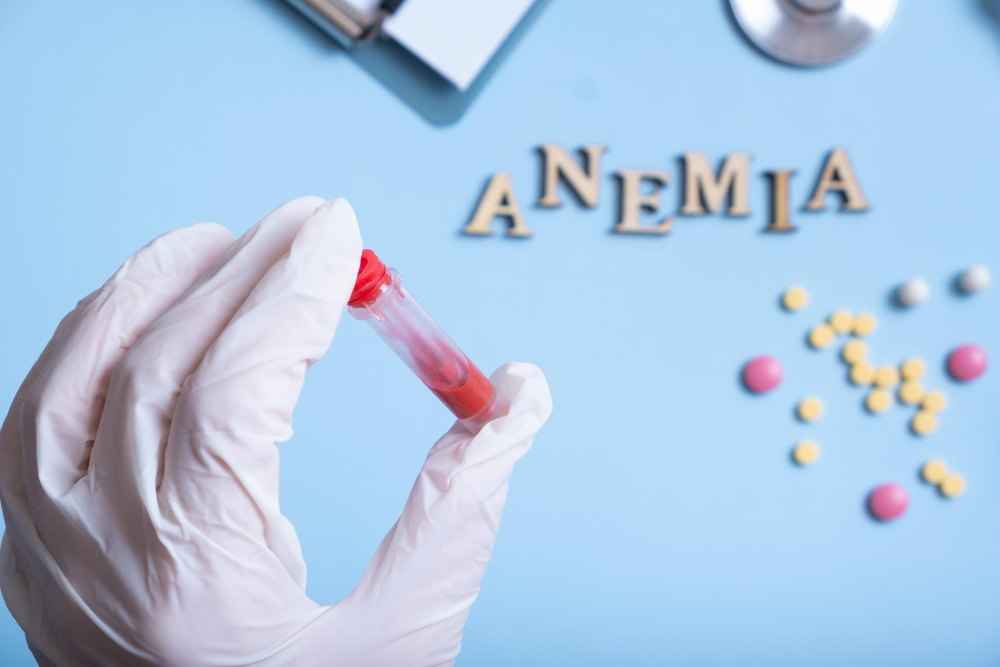Understanding Anemia's Impact on Reproductive Health

Medically Reviewed By
Dr Sohini Sengupta
Written By Meenakshi
on Mar 4, 2024
Last Edit Made By Meenakshi
on Mar 17, 2024

Are you feeling exhausted all the time despite taking proper rest? If you nod your head to YES, you should be alert. The lack of energy and lethargy all the time without any known reason is one of the common signs of Anemia. So, before ignoring the sign, ask yourself, are you tired, or is it Anemia? Don't know how to differentiate? The blog is for you. While Anemia can affect anyone, regardless of their gender, it is very common in women. Besides disrupting an individual's daily routine, it can influence women's reproductive health. You must have so many questions about it; don't worry; we are here to dive you into the pool of knowledge so you can understand the condition and take measures accordingly. So, let's get started.
What is Anemia?
Anemia is a medical condition when your body lacks healthy red blood cells or hemoglobin required to carry oxygen to the body's tissues. While it's often discussed in the context of general health, its implications for reproductive health are equally significant but often overlooked. So, how does it affect reproductive health? Scroll down to find:
Before finding the impact, let's understand if it is Anemia or just fatigue.
How do we differentiate between Anemia and normal fatigue?
- Symptoms: Along with Fatigue, Anemia may present several other symptoms, such as difficulty breathing, dizziness, headache, chest pain, irregular heartbeat, restless legs at night, cold hands and feet, and more. However, general fatigue is just fatigue, which will be fine after an overnight rest.
- Underlying Causes: Fatigue could be caused by anything, including lack of sleep, stress, poor diet, dehydration, etc. On the other hand, Anemia refers to red blood cell (RBC) deficiency or hemoglobin, which can result from iron deficiency, vitamin deficiencies, genetic conditions, or other medical reasons.
- Diagnostic Tests: Anemia can be diagnosed through blood tests that measure hemoglobin, hematocrit, and red blood cell levels. If Anemia is suspected, a healthcare provider may order these tests along with additional tests to identify the underlying cause.
- Overall Health: Considering overall health status is essential in differentiation. Anemia often accompanies other health issues, so a thorough evaluation by a doctor is critical to determine the cause of fatigue accurately.
These are some of the points that can make it easier for one to differentiate between the both.
The Impact of Anemia On Reproductive Health:
- Influence Menstrual Cycle: Anemia can cause irregularities in the menstrual cycle. It can make periods heavier and longer, which worsens the condition because more blood is lost. The excess blood loss during periods can lead to the depletion of iron stores.
- Difficulty in Conceiving: Anemia due to iron deficiency can disrupt the normal functioning of ovaries, affecting ovulation and reducing the chances of conception. Moreover, Anemia impairs the implantation of a fertilized egg in the uterus, further causing difficulty in conceiving.
- Make Pregnancy Complicated: Pregnancy has many ups and downs, and Anemia complicates the journey. Since the body already lacks healthy red blood cells, it can pose serious risks to the mother and the unborn baby, increasing the risk of complications like preterm birth, low birth weight, and maternal mortality. Furthermore, if Anemia is left untreated, it can cause developmental abnormalities in the fetus and long-term health issues for the child.
- Make Recovery After Childbirth Harder: Childbirth itself can cause a lot of blood loss, and further Anemia can make the condition more complicated. It is because your body needs adequate iron levels to recover. Anemia due to iron deficiency can make it harder for women to recover, leading to more complications and longer recovery times.
- Risk of Maternal Complications: Severe Anemia or Anemia, which is left unaddressed, can even increase the risk of serious problems during childbirth, like heavy bleeding, which can be harmful for both the mother and the baby.
Conclusion:
In short, Anemia impacts reproductive health in many ways beyond its immediate symptoms. From menstrual irregularities to pregnancy complications and maternal mortality, its consequences can be severe and far-reaching. Therefore, understanding the link between Anemia and reproductive health is the first and foremost step to addressing the issue, accessing appropriate treatment, and improving outcomes. So, get tested at the earliest to diagnose the condition and take measures before things turn ugly.
Importance Of Early Diagnosis For Anemia:
- Helps With Timely Treatment: Identifying the issues early allows healthcare providers to prescribe the treatment to prevent the disease from worsening or causing complications.
- Preventive Measures: It also allows individuals to take preventive health measures like lifestyle changes, dietary recommendations, or other interventions to mitigate the condition's progression.
- Identify Underlying Cause: Anemia may result from several underlying conditions, and identifying the actual cause is essential to identify the root cause and ensure better management of the condition.
Choose Redcliffe Labs For Anemia Profile Test
Diagnosing Anemia in time is the first and foremost step towards a healthy you. So, if you have symptoms or your doctor may have suggested an Anemia Test, Redcliffe Labs is the best Omnichannel Pan India Diagnostic Service Provider for you. We offer a comprehensive range of health checkups at affordable rates.